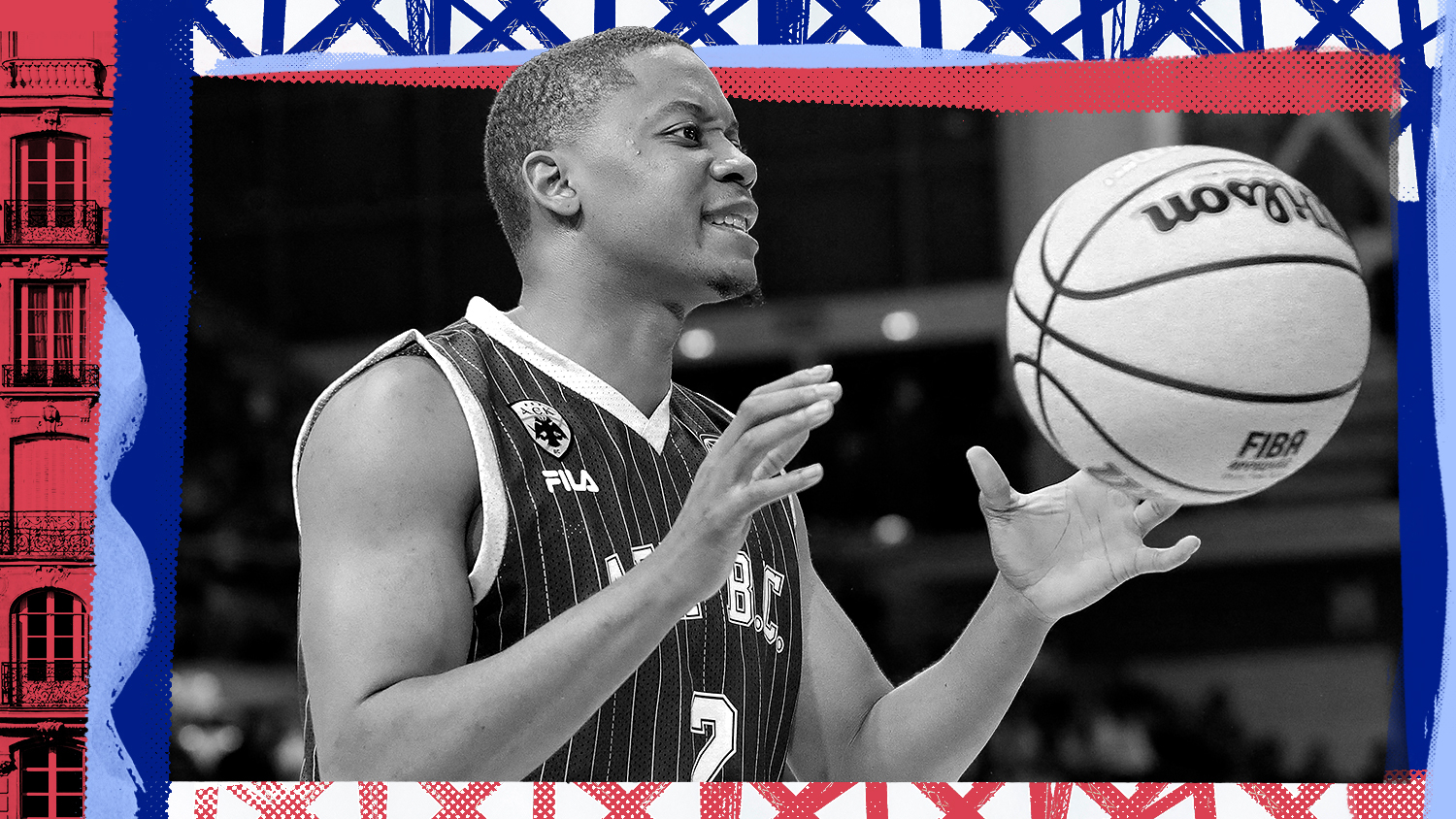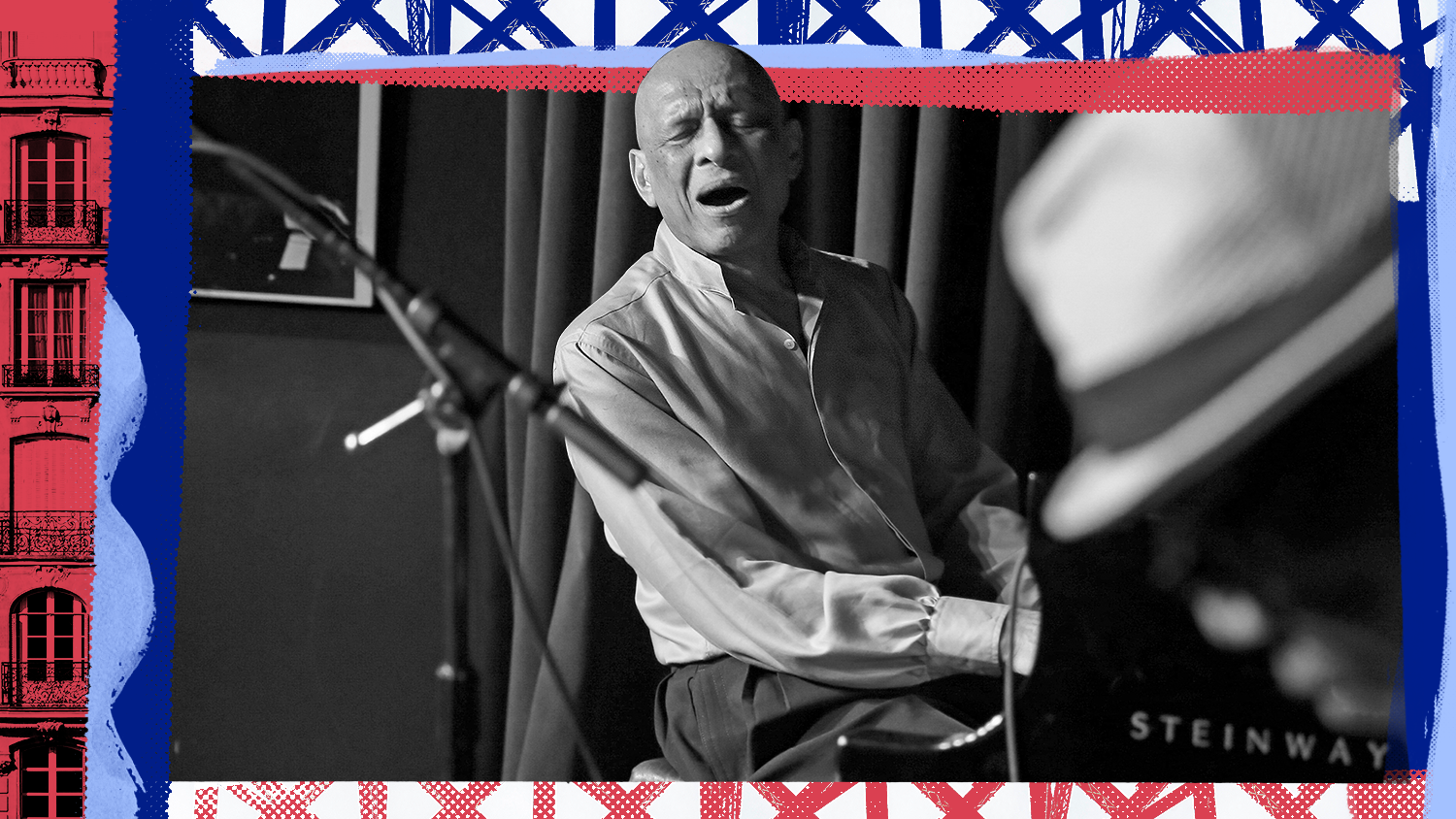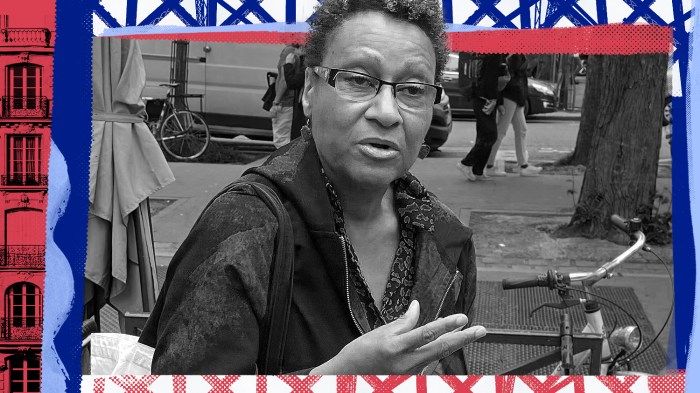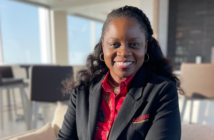Black Americans in France is an ongoing series highlighting African Americans living abroad during the 2024 Paris Games.
Julia Browne has been guiding travelers through the history of Black Paris since 1994.
As the owner and founder of Walking the Spirit walking tours, Browne is part of a bustling enterprise that explores the deep, rich history of African Americans in Paris. For many Black Americans, Paris represented liberation and an escape from the steady drone of racism.
For a number of reasons, this was not Browne’s reality.
“To be honest, it was somewhere different, and I liked being somewhere different,” Browne said during a recent interview from her home in Paris. “I liked being in a new culture, I liked looking around and not knowing what types of things were going on and having the opportunity to learn what other people were doing. What life was about.
“I wasn’t looking for freedom. It was a life that was more satisfying and felt closer to my personality.”
Browne’s journey was as compelling as the history her tours reveal. She became part of the Black expat community in February 1990 when she left Canada and moved to the city that had resonated in her soul since she was 10 years old.
Browne was born in Yorkshire, England, after her parents had emigrated from the island of St. Kitts in the 1950s. They were part of the Windrush generation, which was composed of citizens of the Commonwealth countries, especially Caribbean individuals and families, who were invited to the UK to help rebuild Britain after World War II. When Browne was 8, the family, looking for a more promising future, moved to Ontario, Canada. Her father left first and worked in a logging camp. The rest of the family followed and settled in a small German hamlet called Kitchener-Waterloo.
Browne said she became intrigued with France, French people, and French culture in elementary school. She studied French and had a French pen pal in 10th grade. She’s not sure how or why her interests developed.
Her spirit was drawn to France in general, Paris in particular.
“There are some things that come into your mind and you just follow it,” she said.
“The turning point came very gradually. It crept up on me. It’s not something I ever thought I’d be doing. If you would have told me this is the work I would be doing, I would have thought, ‘but that doesn’t even exist,’ because it didn’t exist.’’
— Julia Browne
When Browne was 17, she discovered that her birth father, who was born in the West Indies, was of French origin. Later she discovered that her birth father had roots in Normandy.
Browne made her first trip to Paris in the late 1970s when she was a flight attendant for Air Canada. Her introduction to France was underwhelming.
“I was disappointed because I didn’t like it, I didn’t like it at all,” she said. “I didn’t like the attitude of the people, it just didn’t sit with me very well. It comes like that when you don’t really know what kind of culture you’re stepping into and it is so different from yours.”
When Air Canada laid off hundreds of workers, Browne used the work action payment to enroll in a study abroad program at the University of Toronto. She chose to live in Aix-en-Provence, a city in southern France just north of Marseilles.
It was there that Browne met the Frenchman who would become her husband. They returned to Montreal and got married. After living in Canada for two years, Browne and her husband moved to Paris in 1990. They arrived on Feb 1, the birthday of poet and novelist Langston Hughes.
 In France, former NBA guard Tim Frazier embraces the overseas experienceRead now
In France, former NBA guard Tim Frazier embraces the overseas experienceRead now
Browne did not have a grand plan. She certainly had no plans to establish a business based on exploring the rich history of African Americans in France.
That came much later.
“The turning point came very gradually. It crept up on me,” she said. “It’s not something I ever thought I’d be doing. If you would have told me this is the work I would be doing, I would have thought, ‘but that doesn’t even exist,’ because it didn’t exist.’’
After a couple years in Paris, Browne began to meet some Black American expats. She met writer Davida Kilgore who, like Browne, was studying at the Sorbonne. They became friends and Kilgore introduced Browne to other Black Americans.
“It took a conscious effort to go out and meet Black Americans,” she said. “I was an oddball because I was Canadian. My experiences felt different than the Americans.”
On the other hand, Browne was familiar with Black American culture, largely because of television.
“We knew what life was like for African Americans. We knew some of the trials and tribulations. We could name all the big cities, we watched all the same TV shows,” she said. “I had a sense that I knew what it was like to be African American, but I still had a distance from it because I didn’t live it quite like that, so it was two different cultures.”
She knew enough about Black American history to know that the differences were significant.
“We in Canada felt that we were safer,” she said. “We didn’t feel like there was all that prejudice and discrimination, but we knew deep down that it was there. It wasn’t to the same level, wasn’t as in your face as much. It didn’t seem like it.”
For Browne, the opportunity to meet and speak with Black Americans in Paris allowed her to see herself in a broader context: She was Canadian, born in Britain, but still Black. Their stories were part of hers.
“It was a chance for me to hear what it was really like aside from what you had seen in the media. I wanted to know what it was really like to be a Black American as opposed to being a Canadian. That still is kind of ongoing,” she said.
Today, she believes that the common bond between Black Canadians and Black Americans is that they are all North Americans.
“But at the time I felt that there was a dividing line between us,” she said.
 Jazz pianist Kirk Lightsey found respect in Paris that was missing in the United StatesRead now
Jazz pianist Kirk Lightsey found respect in Paris that was missing in the United StatesRead now
The seeds of Browne’s Black Americans in Paris tourism business were planted while she was a taking classes at the Sorbonne. One of her professors, Michel Fabre, who co-founded the Center for Afro-American Studies, had written a book titled A Street Guide to African Americans of Paris.
Browne took the book and walked with it through the streets of Paris. She discovered, for example, that Hughes had lived close to her apartment in the 17th district.
There were so many other gems that she had never known about. “I love research, I love documentaries, I like learning,” Browne said. “I took the book and started walking around with it.
“It was so astonishing to me that I kept doing this walking around places.”
By this time Browne had become part of a group of Black American women called Sisters. During the group’s monthly meetings, Browne began talking about her tours and about the history she had explored.
“I was telling my sisters what I was finding out and someone asked, ‘Could you show us some of these things?’ So, I wrote down somethings on cards and I took some of my friends out.”
Word of her informal tours spread and when friends and relatives visited they asked Browne to be their guide. “That’s literally how it started, I just started showing people because somebody had heard, and somebody told somebody.”
In 1994, an editor from Essence magazine visited Paris. Browne took her around and she wrote a story about the tour. Later, a reporter from the Wall Street Journal wrote about Browne’s Black Paris tour. “It snowballed. It surprised me, but it was so much fun,” she said. “You feel the need and you just step into it.”
As popular as the business has become, Browne remembers that at the outset, travel agencies she contacted did not believe a Black Paris tour was something their customers would want to pursue.
“I would contact travel agents and ask them in the States, ‘Do you think your clients would be interested in this?’ And they said, ‘No, I don’t think so. I can’t see why,’ ” Browne said.
“It was the travelers who went back to their travel agent and said, ‘We want to do this,’ Browne said. “People in general felt a need and they needed somebody to get it done for them. And that’s when the travel industry — well, certain agencies anyway — saw that there was a demand for it. And that’s when it really started.”
Unlike some expats who live in Paris year-round, Browne continues to travel between Paris and Canada. She has trained staff to execute the tours when she is out of the country.
“I was doing the administrative and all that, and I had guides leading the tours. And it was interesting because I got to pass that training and knowledge on to other people I knew among the Black Americans,” Browne said. “It wasn’t just mine anymore, it was other people kicking the can down the road a bit. That was good too. It wasn’t a bad thing in that way.”
 San Antonio Spurs rookie Victor Wembanyama builds huge followingRead now
San Antonio Spurs rookie Victor Wembanyama builds huge followingRead now
When she first moved to Paris, Browne inhaled the culture and loved it.
“In those first years and the fact that I was here full time all the time — bringing up my children, living the life as a wife and part of a French-based family, having friends, teaching, working — I became more and more identified with where I was living. It made me feel good to be part of this society. I liked being French. That’s what I identified with more than being Canadian.
“I feel like I’m more of myself here. I feel like I obviously found a mission and the reason for being here in a way that I don’t feel when I’m back in North America.”
On the other hand, Browne said she also embraces her Canadian roots, and more than anything, enjoys being able to go back and forth. “It allows me to relax into one. And then when I get sick of that, I can relax into the other one,” Browne said. “I just can’t imagine just being one.”
As comforting as Paris has been for generations, Browne, like others, takes pains to point out that Paris is not paradise for Black Americans.
“I don’t think it’s a panacea. Nothing is a panacea. But there are times when you need a break and there are places where you can get a break, where you don’t have to be thinking, you don’t have to feel oppressed, where you can hide,” she said.
“You start to calm down, you start to relax. And then you find other parts of you that you can bring out, just like the writers did. They found a certain space where they could create. And then you get a breath, and then you throw yourself back into the fight if you need be or find where you’re going to fight or what you’re going to fight about. You choose it, but at least you’ve had a chance to sit out a couple of rounds, right?”
William C. Rhoden is a columnist for Andscape and the author of Forty Million Dollar Slaves: The Rise, Fall, and Redemption of the Black Athlete. He directs the Rhoden Fellows, a training program for aspiring journalists from HBCUs.



